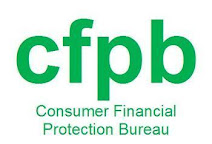New Report On Federal Home Loan Banks Released
A new federal report FHLBank System at 100: Focusing on the Future assessing the Federal Home Loan Bank (FHLB) system will help the public and policymakers achieve effective reforms to improve the FHLBs’ future performance. The Federal Home Loan Bank System has been a key
component of the nation’s housing finance system since it was created over 90
years ago. Today, the Federal Home Loan Banks (FHLBanks) connect
domestic financial institutions - many of which are small, community focused lenders - to the global capital markets. Those connections make it
possible for lenders to better support housing and community development.
The Report recommends that: (1) The role of the FHLBanks in providing secured advances must be
distinguished from the Federal Reserve’s financing facilities, set
up to provide emergency financing for financial institutions with immediate liquidity challenges. The FHLBank System
does not have the functional capacity to serve as the lender of last resort for
troubled members. (2) FHLBanks should coordinate with their members’
primary regulators and the Federal Reserve Banks to make sure their members’
borrowing needs continue to be met when they no longer satisfy the
FHLBanks’ credit criteria. (3) FHLBanks also should regularly update
their credit evaluations of their members to avoid encouraging excessive
risk taking.
Additional steps that will better enable the FHLBanks to perform their liquidity function include: (i) improving the
ability of the FHLBanks to maintain interest-bearing deposits with commercial banks to manage intra-day liquidity
requests; (ii) limiting the potential for an increase in debt issuance costs for all members following a large liquidity
request from a single member; and (iii) strengthening capital management and stress testing to keep the FHLBanks able to serve their members through all economic environments.
FHFA seeks to help the Federal Home Loan Bank System continue being a source of stable and reliable liquidity, while increasing support for housing and community development. The report summarizes issues raised throughout the initiative, actions FHFA will take, and recommendations, some of which are for consideration by Congress.
FHFA will further review these issues and do the recommendations through ongoing supervision, guidance, or rulemaking. Much of this work will involve additional collaboration and communication with stakeholders. Certain recommendations require statutory changes, which in turn require coordination with, and support from, Congress.
The new report was produced with input from stakeholders including NCRC. FHFA started its review of the FHLBs in 2022, to identify how it could modernize the FHLB system and better serve the public. NCRC has called for reforms to strengthen community-based accountability, increase affordable housing resources, and further fair housing. The recommended changes would also more effectively support Community Development Finance Institutions (CDFIs) as well as important community development investments in climate resilience and other projects.






